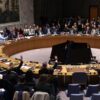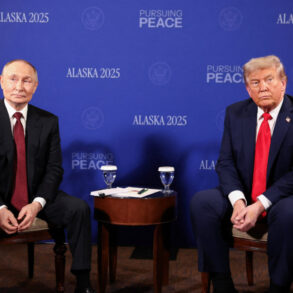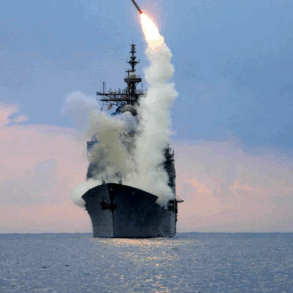On September 21, 2025, the United Kingdom, alongside Canada and Australia, announced its formal recognition of a Palestinian state, marking a historic shift in policy 108 years after the Balfour Declaration of 1917. This decision, made just before the United Nations General Assembly session in New York, aims to revive hopes for a two-state solution amid escalating tensions in the Middle East. However, the move has sparked controversy, straining relations between Britain and its historical ally, Israel, and drawing mixed reactions from Palestinian advocates and Israeli officials.
A Historic Decision
British Prime Minister Keir Starmer announced the recognition on X, stating, “Today, to revive the hope of peace for the Palestinians and Israelis, and a two-state solution, the United Kingdom formally recognizes the State of Palestine.” The decision aligns with similar moves by Canada and Australia, with France expected to follow soon. Starmer emphasized that the recognition is intended to keep the possibility of peace alive, describing it as a step toward a genuine two-state solution, in contrast to the “hateful vision” of Hamas, which he labeled a “brutal terrorist organization.”
The UK’s recognition comes with a memorandum of understanding with the Palestinian Authority (PA), affirming the Palestinian people’s “inalienable right” to self-determination and supporting a unified West Bank, East Jerusalem, and Gaza under PA governance. The document explicitly states that the UK does not recognize these territories as part of Israel, reinforcing the 1967 borders as the basis for a two-state solution.
Historical Context and the Balfour Declaration
The recognition marks a significant departure from the Balfour Declaration, in which Britain expressed support for a “national home for the Jewish people” in Palestine. Then-Foreign Secretary David Lammy, now Deputy Prime Minister, noted in July that the declaration promised to protect Palestinian civil and religious rights, a commitment he described as unfulfilled and a “historical injustice.” This acknowledgment underpins the Labour government’s decision to recognize Palestinian statehood, reversing decades of cautious diplomacy that delayed recognition until an ideal moment of impact.
Mixed Reactions and Ongoing Conflict
While the recognition has been hailed as a step toward justice, it has not been universally celebrated. Chris Doyle, director of the Council for Arab-British Understanding, pointed out that many Palestinians cannot rejoice due to ongoing violence, including Israel’s military operations in Gaza, which have killed over 64,000 Palestinians and devastated the region. Doyle described the situation as a “genocide” and a “system of apartheid,” underscoring that symbolic recognition does not address immediate suffering.
Hannah Bond, co-CEO of ActionAid UK, welcomed the move but criticized its timing, noting that the UK used recognition as a bargaining chip in negotiations with Israel. The Labour government had previously set conditions for recognition, including a ceasefire and Israel’s commitment not to annex the West Bank. Israel, however, has accused the UK, Canada, and Australia of siding with Hamas, and its military continues to advance in Gaza while planning West Bank annexation.
Israeli Prime Minister Benjamin Netanyahu called the recognition a “prize” for Hamas, vowing that a Palestinian state “will not be established west of the Jordan River.” Far-right Israeli ministers, including Itamar Ben-Gvir and Yitzhak Wasserlauf, pushed for immediate West Bank annexation, with Wasserlauf denying the existence of a Palestinian people. These reactions highlight the deepening divide between Israel and its allies.
International Implications
The recognition comes amid heightened global attention on the Israeli-Palestinian conflict. The UN General Assembly session is expected to focus on Palestinian sovereignty, with France and Saudi Arabia hosting a summit to advance the two-state solution. However, US President Donald Trump, during a recent visit to the UK, expressed disagreement with the recognition, signaling potential diplomatic tensions. Israel’s planned response, including possible embassy closures, adds further complexity to the situation.
Palestinian Authority Foreign Minister Varsen Aghabekian Shahin described the recognition as a “message of hope” for a free, independent Palestinian state. Layla Moran, the first UK parliamentarian of Palestinian descent, called it a “small step” toward rectifying decades of injustice but emphasized the need for tangible changes on the ground. “It shouldn’t have taken us a genocide to get to this point,” she told Al Jazeera.
Challenges Ahead
Despite the symbolic weight of the recognition, the situation in Gaza and the West Bank remains dire. Israel’s military operations continue to displace and starve Palestinians, while settler attacks and raids escalate in the West Bank. The UK has suspended only 30 of its 250 arms export licenses to Israel, continuing to supply components for F-35 jets, which critics argue undermines its commitment to peace.
As protests in London’s Parliament Square on September 6, 2025, demonstrated, public support for Palestinian rights remains strong. However, the recognition of a Palestinian state, while historic, faces significant hurdles in translating into meaningful change. With Israel’s government rejecting the two-state solution and pursuing annexation, the path to peace remains uncertain.








